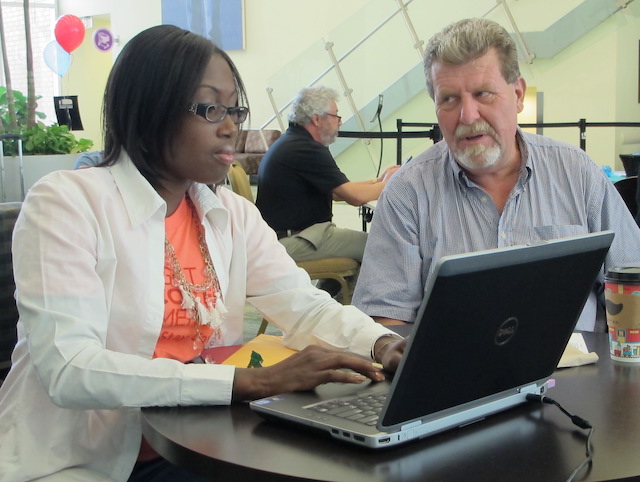Florida Covering Kids and Families program has shift in leadership
With nearly one million Floridians set to lose Medicaid coverage now that the COVID-19 public health emergency is ending, leadership responsibilities of the Florida Covering Kids and Families (FL-CKF) program—housed within the USF College of Public Health (COPH)—is being divided into two roles.
The mission of FL-CKF is to foster and facilitate innovative methods for enrolling and retaining eligible children in Florida’s publicly funded insurance programs (Florida KidCare & Medicaid). It also works to enroll and retain eligible adults in the Federal Health Insurance Marketplace. It does this largely with the help of “Navigators,” or specially trained individuals who provide information on health insurance plans and assistance with signing up.

Jodi Ray, former program director of FL-CKF, is now a senior consultant for the program, working on policy, advocacy and Medicaid “unwinding.” (Now that the public health emergency is ending, the federal government is no longer paying states to get residents, regardless of income, enrolled in health insurance and Medicaid programs; the Department of Children and Families has identified 900,000 people who, based on their 2022 income, will become ineligible for Medicaid.)
Dr. Ellen Daley, a COPH professor and senior associate dean for research and practice, is principal investigator of the multi-year, multi-million-dollar program, which is grant-funded through the federal government.
Both role changes took effect earlier this year.
“This is a very tumultuous time when it comes to health care access and coverage, and being a good advocate is absolutely essential right now,” Ray said. “I’ll be investing a lot of my time on issues that affect the project but are outside of it—things like Medicaid unwinding and working with community, state and federal partners to determine how a lack of health care might affect social determinants of health and lead to problems such as financial or housing instability. Giving up the operational and administrative aspects of the program will allow me to devote more time to these things and to build a strong feedback loop, so details about what’s happening on the ground can be conveyed to state and federal partners, giving us some semblance of accountability.”
“The role Jodi is taking on is so critical to the State of Florida,” Daley added. “It really elevates the program. Jodi has so many connections and so much insight into the implications of the guidelines happening now with funding and eligibility. I see some of the program funders learning from her and taking notes. It’s amazing to have someone with Jodi’s background and expertise address what will be a continual need for the state—policy and advocacy.”
Daley said her role will be working with the COPH leadership team to help guide the program’s operations and support the essential work of the statewide partners who actually hire the Navigators and provide outreach and education to consumers.
“With a grant this size, operations—things like finances and research compliance—is a big job,” Daley said. “The role needed to be split up. With the team approach we’re taking, I’ll have input from human resources, finance and business operations and administrations. This will free Jodi up to do her critically important advocacy work and to communicate with our partners in the Covering Florida Consortium and also give her time to resume her DrPH studies.”
Story by Donna Campisano, USF College of Public Health
